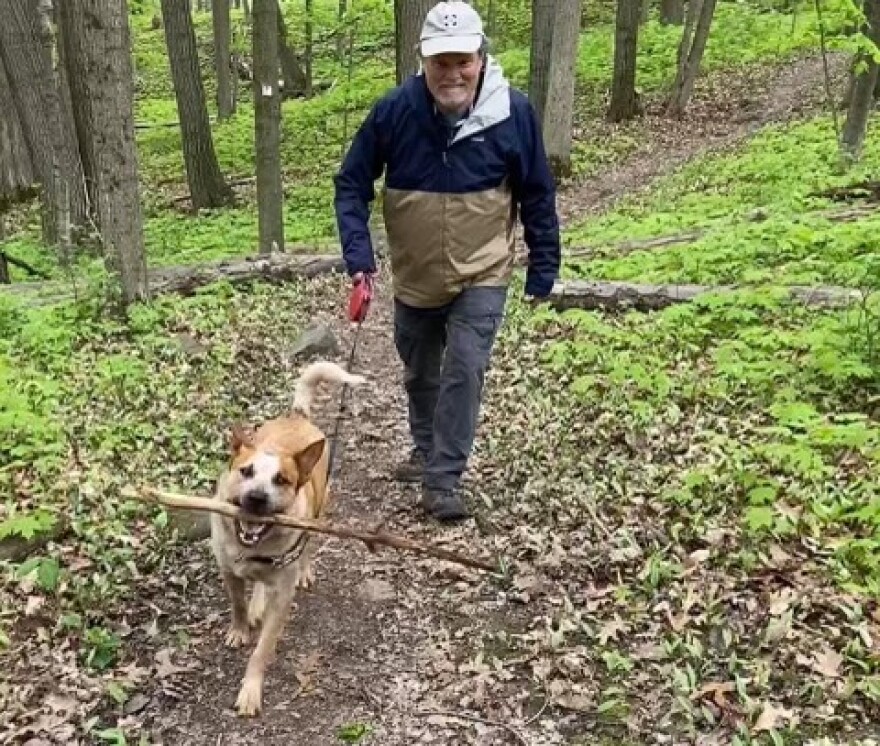Gov. Tony Evers will serve a second term after beating GOP challenger Tim Michels in last week’s Midterm Elections.
Michels has said he doesn’t believe in human caused climate change.
In contrast, during his first term in office, Evers created the state’s first office focused on sustainability and environmental justice and established advisory groups to address forever chemicals and climate change.
Natural resource policy has gone through many changes over the last few decades as more research is made available and as the governorship has changed hands and parties.

Todd Ambs has watched it all unfold. Earlier this year, he stepped down as deputy secretary of the Wisconsin Department of Natural Resources after a decades-long career in water policy.
Ambs shares a few thoughts on past Wisconsin administrations' climate and environmental track records.
Gov. Tommy Thompson 1987 - 2001
"Tommy Thompson was very supportive of the stewardship program (Knowles-Nelson) stewardship program that very strong bipartisan support," Ambs says.
Gov. Thompson also supported the creation of the Lower Wisconsin Riverway. Years in the making, the project resulted in the "longest free-flowing stretch of river in the Midwest. This 45,000-acre property extends along 92 miles of the river from Prairie du Sac to the confluence with the Mississippi River (Wisconsin DNR)" rich in wildlife, fisheries, historical and archaeological sites.
Ambs says Thompson was also known for a couple of controversial issues.
"One was his effort in 1995 with the legislature to remove the DNR secretary from a board-appointed position to make it a cabinet position," Ambs says. "And there was a great deal around the Crandon mine. In the end the moratorium that was passed in the legislature on metallic mining was something that was ultimately supported by Thompson but it was very questionable leading up to that."
Gov. Jim Doyle 2003-2011
Ambs, who headed the state's water division throughout most of the Doyle era, describes the tone of the legislature at that time as acrimonious.
He says there were efforts within the state legislature to roll back regulations, especially water-related regulations.
At the same time, Gov. Doyle supported first steps in acknowledging and addressing climate change in Wisconsin. "That's when the Wisconsin Climate Change initiative was created," Ambs says.
Doyle was also instrumental in forging the Great Lakes Compact, designed to foster a sustainable water management system for the region and ban diversion outside the basin, with limited exceptions.
"That effort was led by Bob Taft, governor of Ohio and Jim Doyle, governor Wisconsin. A Republican governor from Ohio and a Democratic governor from Wisconsin leading this effort to one of the most significant water compacts not only in the United States but in the world," Ambs says.
Gov. Scott Walker 2011-2019
Ambs says Gov. Walkers open for business mantra signaled a sea change in natural resources management in the state.
"On top of that you had an even more conservative group of people in the state legislature that were leading efforts to role back regulations... Wetland regulations and mining regulations and to make changes to forestry laws," Ambs says.
READ New Wetlands Rules Begin To Roll Out
"I would say that one of the key things that were different previous administrations always had some sort of initiative of some kind that was to enhance some aspect of natural resource management. But again, as the motto suggested, focused on those things, which were deemed to be beneficial to the business community in the state with the whole issue of environmental protection as less of a focus in the administration," Ambs says.
Gov. Tony Evers 2019 - Present
Ambs credits the Evers administration with environmental policy strides, including:
The Year of Clean Drinking Water. "Proclaimed in 2019 [it] really drew attention to the challenges that we have, still have whether it's PFAS contamination, legacy lead service lines in many communities around Wisconsin and then challenges with contaminated private well," Ambs says.
Evers has not been successful in rallying the state legislature to push forward with policy.
"But on his own, the Evers administration was able to get significant federal dollars, nearly $100 million in funding for lead service line lateral removal, for addressing well contamination issues," Ambs says. "And now work that is continuing thanks to the Federal Infrastructure Law, which has put significant dollars on PFAS.
The Evers team breathed life back into the Wisconsin Climate Change Initiative, created during the Doyle Administration. "And just once again being able to recognize that as the overarching threat and challenge to natural resources in Wisconsin versus the previous administration where they did not even want to use the word climate change, let alone have a state agency that was focused on the challenges associated with that climate change," Ambs says.
He's optimistic about Evers' second term, but not because Ambs anticipates the ability to craft new state environmental policy.
"Thankfully, he's not going to have to do a lot of that because that Infrastructure Law provides significant new funding for five years," Ambs says. "Those federal dollars just need to be efficiently spent, and can be efficiently spent on PFAS, lead lateral removals, and to address some of the polluted runoff challenges that are causing contamination of our private well in the state," Ambs says.
_






